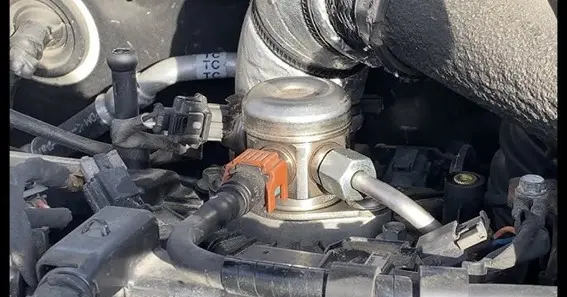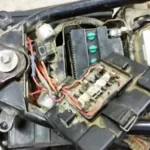A high-pressure fuel pump is a critical component in modern automotive systems, particularly in vehicles equipped with direct fuel injection engines. Unlike standard fuel pumps, high-pressure pumps deliver fuel at much higher pressures, typically around 2,000 psi, ensuring optimal combustion in the engine’s cylinders. This precise fuel delivery is vital for maintaining engine performance, fuel efficiency, and reduced emissions.
How Does a High-Pressure Fuel Pump Work?
The high-pressure fuel pump receives fuel from the in-tank pump at low pressure and then compresses it to a much higher level before sending it to the fuel injectors. This pressurization process allows for finer atomization of fuel, which improves combustion efficiency and power output in the engine.
High-pressure fuel pumps are often driven by the engine’s camshaft, ensuring that fuel is delivered exactly when needed. As the engine demands more fuel, the pump adjusts the pressure to meet these needs, maintaining smooth and efficient operation.
Also Read N: Emaan Southington Age: How Old Is The Rising Star?
Benefits of a High-Pressure Fuel Pump
- Enhanced Engine Performance: By delivering fuel at the required pressure, these pumps help optimize combustion and power output.
- Improved Fuel Efficiency: More efficient combustion means better fuel economy, which is increasingly important in modern vehicles.
- Lower Emissions: The precise fuel delivery helps reduce unburned fuel and harmful emissions.
- Durability: High-pressure pumps are designed to endure the demands of modern engines, often lasting the lifetime of the vehicle when properly maintained.
Also Read P: Coco Lovelock Height: How Tall Is The Rising Star?
Common Symptoms of a Failing High-Pressure Fuel Pump
- Engine Misfires: A malfunctioning pump may not deliver enough fuel, causing misfires or rough engine performance.
- Difficulty Starting: If the pump can’t provide sufficient fuel pressure, your engine might struggle to start or fail to start altogether.
- Sudden Surges: Unexpected acceleration without pressing the pedal can indicate inconsistent fuel delivery.
- Reduced Fuel Efficiency: If the pump isn’t functioning correctly, you might notice decreased fuel economy.
- Check Engine Light: Fuel system problems, including those related to the pump, often trigger the check engine light.
FAQ
- What does a high-pressure fuel pump do?
- It delivers fuel to the engine at a higher pressure than regular fuel pumps, ensuring efficient combustion and engine performance.
- How can I tell if my high-pressure fuel pump is failing?
- Symptoms include difficulty starting, engine misfires, sudden acceleration surges, and reduced fuel efficiency.
- Why are high-pressure fuel pumps necessary for modern vehicles?
- They are essential for direct fuel injection systems, allowing for precise fuel atomization and improved fuel economy.
- How long does a high-pressure fuel pump last?
- With proper maintenance, high-pressure fuel pumps are designed to last the lifetime of a vehicle.
- Can I replace a high-pressure fuel pump myself?
- Due to the complexity of the system, it’s recommended that a professional mechanic handle the replacement.
High-pressure fuel pumps play a vital role in maintaining the efficiency and performance of modern engines, making them an essential component in today’s vehicles. If you suspect issues with your fuel pump, it’s critical to address them promptly to avoid more significant engine problems.










